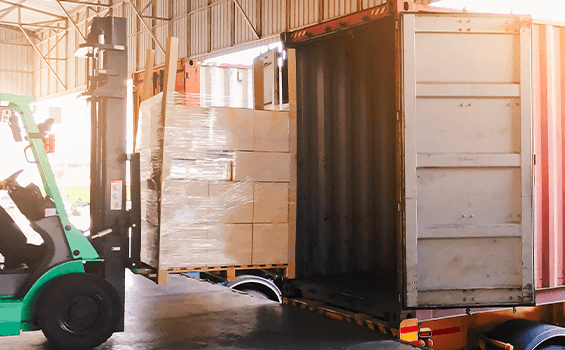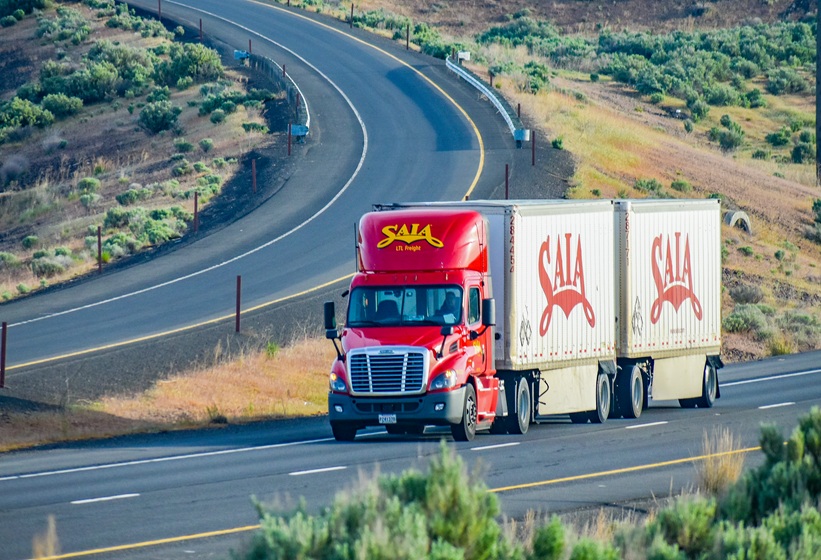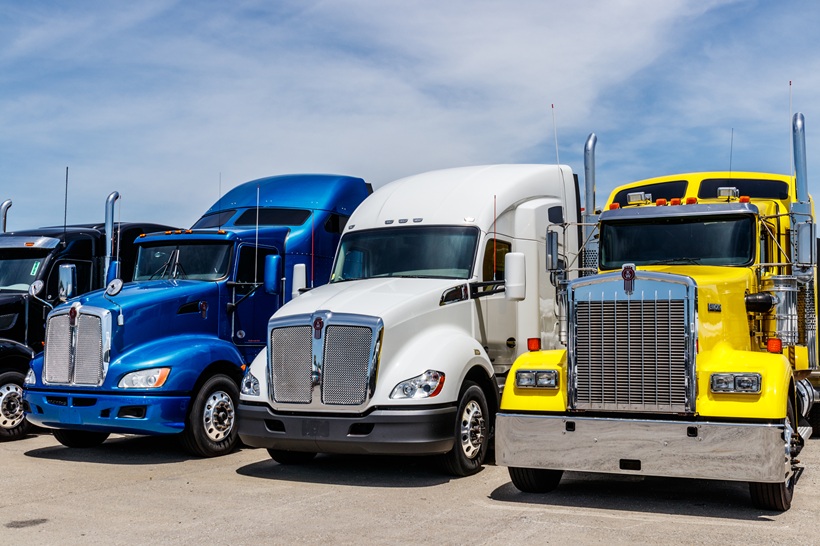
Double Brokering Uncovered: Inside the Industry’s Intensifying Challenge
We’ve heard many times how logistics and the supply chain run like a fine-tuned engine, and for the most part this analogy is accurate. Much like an engine, there are many parts that work in sync to maintain the momentum of operations – but every engine has its points of failure. One of the biggest failure points in this figurative engine is the practice of double brokering, and unfortunately – it’s getting worse.

In the world of trucking and transportation, double brokering is a fraudulent practice that involves the re-assignment of a load from one original party to a secondary party, all without permission or knowledge from the shipper (and sometimes broker). It’s important to note that there is a difference between co-brokering and double brokering. Co-brokering allows the re-brokering of loads with permission from the shipper and keeps them informed of these changes. Double brokering occurs when:
- A shipper assigns a load to a broker, who (without permission and unknown to the shipper) re-assigns that load to another brokerage to dispatch out.
- The broker dispatches the load to one of their carriers, who also without permission, re-assigns the load to another carrier to haul.
In both examples above, the common theme is that there is a lack of visibility among the parties involved regarding who is handling the load, creating substantial issues (we’ll touch on this later). It’s important to distinguish that the name “double brokering” can be somewhat misleading because it’s not limited to the broker.
Our experts even described a growing scam that’s appeared in southern California, where a “carrier” appears and accepts the shipments, double brokers them, and then shuts down. In reality, they never had any equipment or intention to haul the load. Instead, they establish themselves on paper as a trucking company, accept the money, get caught, shut down, and like a ragweed – they pop up again to repeat the cycle.
So, what is the significance of this issue?
Double brokering is a MAJOR problem, and our team could not emphasize this enough. The practice is against the regulations of the Federal Motor Carrier Safety Administration (FMCSA) – meaning that this is (if nothing else) illegal. Beyond this there are several reasons it’s parasitic to the supply chain:
- Visibility: Double brokering prevents the shipper (and possibly broker) from knowing who’s carrying the load, where it is, or if it will ever arrive at its destination. Ultimately, the shipper trusts the brokers they hire to securely manage their loads. Double brokering not only puts a specific load in jeopardy, but risks the entire shipper-broker relationship.
- Hostage Loads: Like theft, hostage loads occur when a carrier realizes that they’ve been dealt a double brokered load and refuse to deliver the load unless they receive payment before-hand. Interestingly, there can be some gray area on the justification of this practice (we’ll highlight in the bullet below).
- Theft: With a lack of visibility, comes a major risk of theft. Loads that are double brokered are likely not going to be tracked, meaning that the risk for the shipment to go missing is very high. Another form of theft (referenced above) occurs when the original carrier who was assigned the load pockets the money they received, leaving the second carrier without payment (which can create a hostage load situation). Ultimately, this leaves the broker in a vulnerable position, requiring them to make an additional payment to the second carrier.
- Insurance Liability: As loads are double brokered, the inability to verify insurance creates potential liabilities concerns as to whether the brokers/carriers have proper insurance to cover that load as a write-off.
If all the above weren’t enough to raise concerns about the critical issues that result from double brokering, there is one more aspect that we wanted to highlight on a broader level – the distrust that this practice creates. The relationship between brokers and their network of carriers can be somewhat fragile, and the addition of this type of fraudulent behavior only creates more divisiveness.

Why does double brokering still occur?
Not only does it still occur, but several publications[1] have reported that it’s actually growing in cases. There are a few primary reasons why a broker or carrier would double broker a load, among them are when:
- A broker can’t find an available carrier to accept the load, so they offload the shipment to another broker.
- A carrier is tight on cash and hires another carrier (usually at a lower rate) and offloads the shipment to the second carrier. This enables the original carrier to pocket profit without touching the load.
- A carrier is tight on capacity and doesn’t have the ability to haul the accepted load, and then transfers it to another carrier.
Calls for the Department of Transportation (DOT) to form a task force to address this issue are gaining momentum. Overdrive magazine[2] detailed this push, quoting a letter from The National Association of Small Trucking Companies that called out the practice, stating:
“The National Association of Small Trucking Companies, leaning into the efforts that led the recent letter being written and delivered, marshaled a letter of support circulated among lawmakers in D.C. that included the signatures of more than 300 NASTC member companies, including many independent owner-operators. “Criminals are becoming more brazen” in the spot market, the NASTC letter of support noted, and “most cases go uninvestigated and unprosecuted. … This crime spree will only continue to get worse until existing antifraud laws are effectively, consistently enforced.”

Here are a few warning signs to look for:
- If a Carrier has a poor rating on industry carrier rating platforms such as Truckstop.com, DAT, or Carrier Assure
- When a carrier has no inspections and less than 3 months of authority
- If you’re directed to speak to a dispatch company, and not the carrier
- If there’s no professional driver information available (like a name or phone number)
- If the VIN doesn’t match the truck on file
- If there’s a problem, and the carrier says it was caused by their owner-operator (this is usually code for double broker)
- If the carrier is regularly requesting quick pay and fuel advance on all loads tendered
When we look at the role of technology within the context of double brokering, it’s clear that we have an opportunity to present the industry with a transparent transaction experience – not only limited to the broker, but among all the parties involved. By enabling innovation, we can present a united front to combat fraud. – Emily Stratton, VP of Customer Solution
How to Address Double Brokering
- Adopting Technology: Implementing technology that emphasizes load visibility and mobility is one of the most effective methods to combatting double brokering; for example, real-time GPS tracking allows you to stay on top of your shipment. Industry leading products such as Transflo Velocity+ and Mobile+ provide you with the security and visibility you need.
–Transflo Velocity+ is an immersive platform for brokers to manage and dispatch loads to their individual network of carriers. Loads are pushed to a specific carrier and then dispatched to one of their drivers, all within the Transflo network. In addition, the platform allows the broker to get real-time updates regarding the location of that shipment and updates at each stage of the load lifecycle (all without any check calls).
–Transflo Mobile+ is the premier mobile app which connects the driver to their carrier and serves as the method to retrieve key updates. In addition, Mobile+ also prevents that load from being passed to another entity because each login is unique to each carrier, and the driver within that fleet.
- Report the Fraud: Many times, double brokering goes unreported when it is caught. Even if the load is completed without issue – the liability for something to go wrong is reason enough to report this practice to the DOT/FMCSA.
As an industry, we can unite to prevent this fraudulent activity. Empowering one another to be educated, understand the warning signs, and take preventative steps will help reduce the prevalence of double brokering.
[1] https://www.ttnews.com/articles/double-brokering-increases#:~:text=While%20it%20is%20still%20illegal,then%20re%2Dbrokers%20the%20load
[2] https://www.overdriveonline.com/overdrive-extra/article/15539812/congress-pushes-for-double-brokeringfraud-oig-task-force



